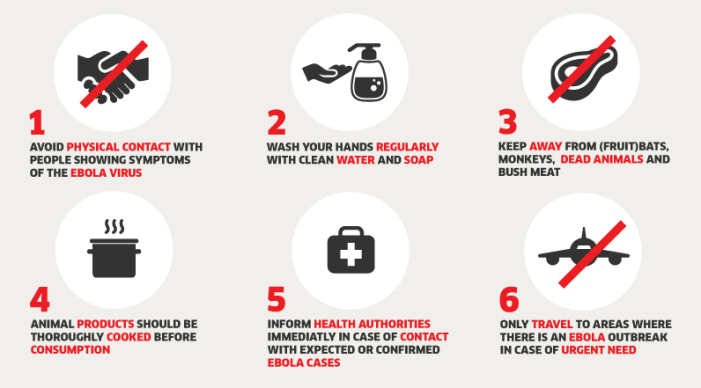Ebola virus disease (EVD), formerly known as Ebola haemorrhagic fever, is a rare but severe, often fatal illness in humans.
Ebola causes an acute, serious illness that is often fatal if untreated. EVD first appeared in 1976 in 2 simultaneous outbreaks, one in what is now Nzara, South Sudan, and the other in Yambuku, DRC. The latter occurred in a village near the Ebola River, from which the disease takes its name.
The virus is transmitted to people from wild animals and spreads in the human population through human-to-human transmission.
The following preventive measures are recommended for people in an area affected by an outbreak:
- Practice careful hygiene (e.g., wash hands with soap and water, alcohol-based hand sanitizer, or chlorine solution)
- Avoid contact with body fluids and do not handle items that have come into contact with an infected person’s body fluids (e.g., clothes, medical equipment, needles)
- Avoid funeral or burial rituals that require handling of the body of someone who has died from confirmed or suspected Ebola virus infection
- Avoid contact with nonhuman primates and bats, including body fluids or raw meat prepared from these animals
- Returning travelers (including healthcare workers) should follow local policies for surveillance and monitor their health for 21 days and seek medical attention if symptoms develop, especially fever.
- Practice proper infection control and sterilization measures
- Isolate suspected patients from each other if possible, and confirmed patients from suspected patients
- Avoid direct contact with bodies of people who have died from confirmed or suspected infection. During epidemics, direct contact with any dead body should be avoided
- Notify health officials if you have direct contact with the body fluids of an infected patient.
10. Avoid Public toilets/ First clean them to be us

